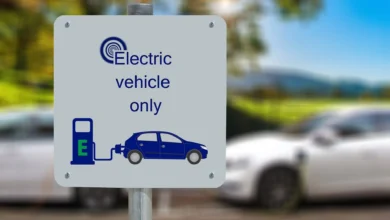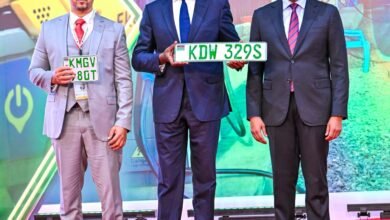
Watu, a provider of financing solutions, has published its inaugural sustainability report, detailing what it says is its substantial progress in financing mobility and connectivity assets, and its significant environmental impact. The report highlights Watu’s commitment to Environmental, Social, and Governance (ESG) principles, underscoring their dedication to uplifting millions and creating lasting positive change across Africa.
Watu CEO and Founder Andris Kaneps emphasized the importance of sustainable practices in empowering African entrepreneurs. “At Watu, we integrate global best practices with local needs, fostering financial inclusion, upholding the highest safety standards, and championing environmental and social responsibility in everything we do,” Kaneps stated.
“We believe that financial inclusion is the catalyst for unlocking Africa’s economic potential. By championing electric mobility and advancing digital inclusion, we’re not just reducing our carbon footprint and closing the digital divide; we’re driving socio-economic development across the continent,” he added.
Watu E-mobility Initiatives
Watu’s ESG strategy is built on three key pillars: financial inclusion, climate action, and road safety and health. Through these pillars, Watu aims to provide equitable access to underserved communities, focusing on women, youth, and rural residents, while enabling SMEs to meet their financial needs fully. Central to this strategy is Watu E-mobility, which seeks to transform transportation across Africa by promoting electric vehicles (EVs).
Since its inception in 2015, the company says it has disbursed over 1 million loans, providing essential assets like motorcycles, tuk-tuks, and smartphones to the unbanked and underserved populations in Kenya, Uganda, Tanzania, Rwanda, Nigeria, the Democratic Republic of Congo, and Sierra Leone. This initiative has empowered individuals and small businesses, enhancing digital literacy, economic growth, and quality of life.
To reduce its carbon footprint, the company says it has set ambitious targets for increasing financing for electric vehicles and their infrastructure, which will help expand e-mobility across the continent. In 2024, Watu plans to finance the adoption of 10,000 electric bikes in East Africa, demonstrating its commitment to clean energy adoption and promoting sustainable transportation solutions.
Strategic Partnerships and Financing Terms
Watu’s e-mobility initiatives include offering preferential financing terms and forming strategic partnerships with key players in the electric vehicle (EV) industry. These efforts are designed to make sustainable choices more accessible and affordable for their clients. The company has set long-term goals to significantly increase EV financing, targeting 500,000 electric bikes by 2030 and empowering 1,000 entrepreneurs to adopt Compressed Natural Gas (CNG) tuk-tuks by the end of 2024.
The company’s commitment to e-mobility, is not only about reducing carbon emissions but also about fostering innovation and promoting eco-friendly practices. This approach aligns with global environmental goals and supports the development of infrastructure for electric vehicles.
Collaboration and Stakeholder Engagement
The 2023 Sustainability Report also details Watu’s collaboration with various stakeholders, including government bodies, non-profit organizations, and private sector partners, to further their environmental goals. One notable partnership is with GOGO Electric, a Ugandan technology company pioneering electric vehicle solutions in Africa.
Watu’s investment in GOGO Electric highlights its dedication to driving sustainable transportation and expanding e-mobility across the continent. By financing over 1,000 GOGO bikes, Watu aims to have over 5,000 electric bikes on Ugandan roads by the end of 2024.
Impact of Watu E-mobility
Watu’s E-mobility initiatives are set to transform the transportation landscape in Africa by making sustainable, cost-effective transportation options available to more people. The strategic investments and partnerships are designed to provide comprehensive solutions, including infrastructure support and innovative EV technologies.
The report emphasizes that Watu’s ESG strategy is about more than just environmental impact. It’s about creating a positive socio-economic effect by empowering individuals with the tools they need to improve their lives. By integrating electric mobility into their business model, Watu is setting a benchmark for responsible business practices in Africa.
Looking Ahead
Watu’s sustainability initiatives and focus on e-mobility position the company as a leader in responsible business practices, driving long-term value creation for all stakeholders and contributing positively to the environment and socio-economic development in Africa. As Watu continues to expand its e-mobility efforts, the company invites stakeholders to join in this transformative journey towards a more sustainable and inclusive future.






